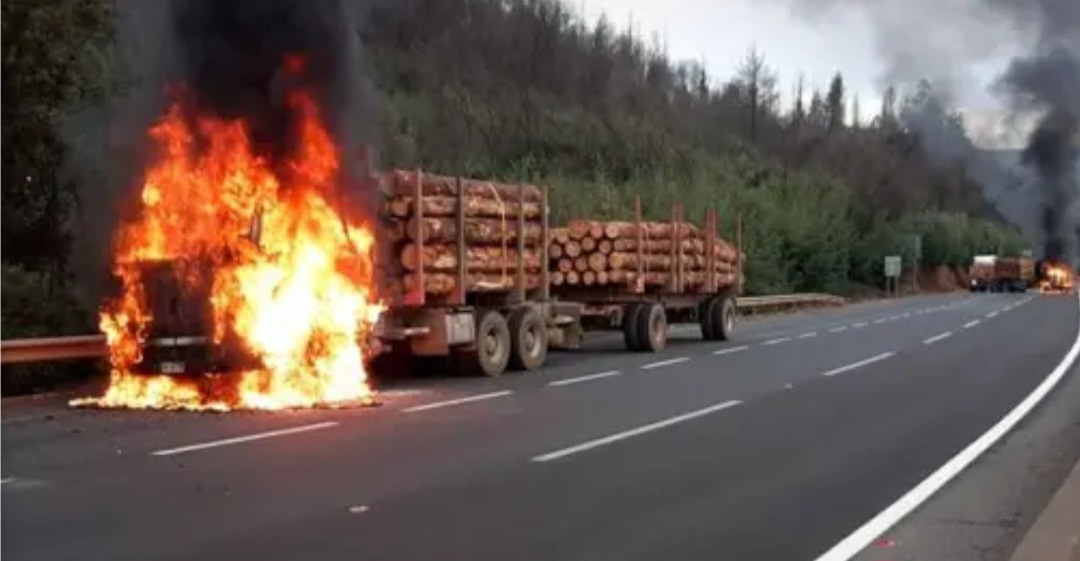The insurance industry has reported stricter sales conditions for insurance policies in the Southern Macrozone, primarily affecting the regions of La Araucanía and Biobío, according to information provided by GPS Seguros. Coverage in this sector is reportedly being restricted by up to 75%.
They also point out that the policy announced by the government earlier this year only covers total commercial loss of the damaged property, excluding most cases. In this regard, it has been noted that coverage is now being restricted, with increased premiums for several products, especially those related to policies protecting heavy vehicles, mobile equipment, forestry, fires, and others.
The president of GPS Corredores de Seguros, Luis Alberto Alcalde, stated that "the companies providing coverage are doing so based on the exposed amounts and analyzing each case individually, setting sub-limits for additional political risks and acts of terrorism, with aggravated rates exceeding 50%."
REACTIONS
The manager of the Association of Forestry Contractors, René Muñoz, expressed that "today, there are no insurance companies willing to enter the insurance business in the Southern Macrozone—it's not that premiums have gone up, but rather that they're simply not available. As for the values, these have undergone significant changes over the past four or five years compared to today. We're talking about premium increases of at least 150% to 200%. That's what's happening with mobile equipment in the forestry sector."
He also added: "We're stuck in a problem that will be hard to escape because, for insurance companies, this is a business. Undoubtedly, if it's not attractive due to the ongoing violence and destruction of mobile equipment and forestry trucks, they'll flee, and today, they're not present in this part of the country," stated the Acoforag manager.
As an example, GPS explains that heavy vehicle policies operating nationwide typically have a fixed deductible in UF for own damages, noting: "We have cases where this amounts to UF 20, but if the same vehicle suffers an incident in La Araucanía or Biobío, this automatically increases to 40% of the loss with a minimum of UF 100."
Furthermore, René Muñoz stated that insurers "are not investing in the forestry sector because everything is uncertain, and not having insurance is simply not an option. Ultimately, it means sacrificing your assets because you're working in a sector where you know that, sooner or later, your equipment will be burned, and you'll lose your capital."
He emphasized the need for state policies to start taking effect, "because we cannot continue living indefinitely under conditions of insecurity and with artificially inflated costs due to the political situation in the area."
THE IMPACT OF THE CONTINGENCY
Rising insurance premiums in the area have driven insurers away and undermined the viability of the forestry sector. Additionally, the only state insurance option is limited and costly, leading to a lack of investment in the sector. Thus, they argue that the solution requires state policies and police action to combat insecurity and crime.
The Acoforag manager asserted: "I believe that police efforts must also advance here—everything related to the crimes in the Southern Macrozone that affect us, including equipment arson, drug trafficking, arms trafficking, cattle rustling, and all the criminal activity entrenched in the Southern Macrozone today. This makes the area unattractive to everyone, not just the forestry sector, but also farmers, tourism, and commerce. It's a national issue that has been dragging on for a long time, and few or no governments have prioritized solving it," he concluded.
Source:www.latribuna.cl







Comentarios (0)
No hay comentarios aún. ¡Sé el primero en comentar!
Deja un comentario